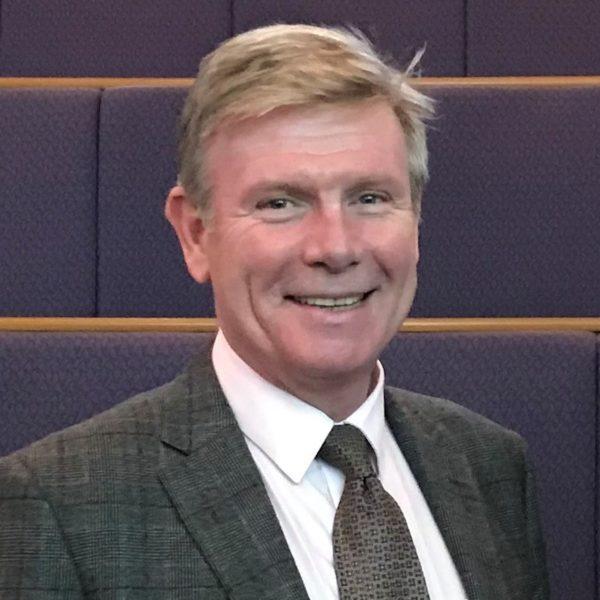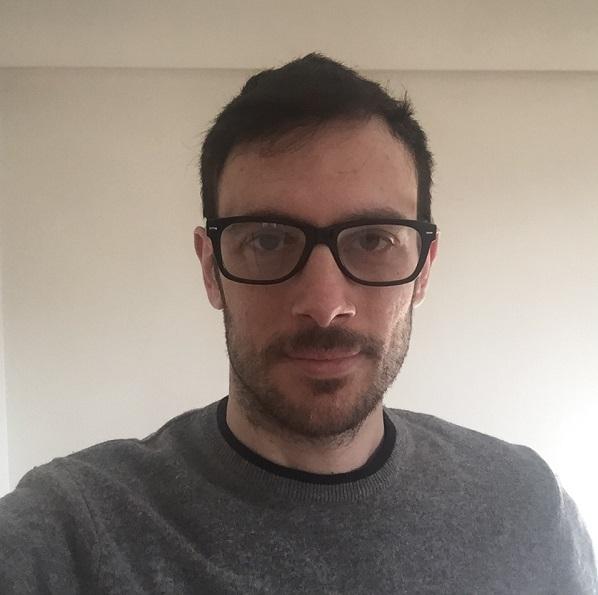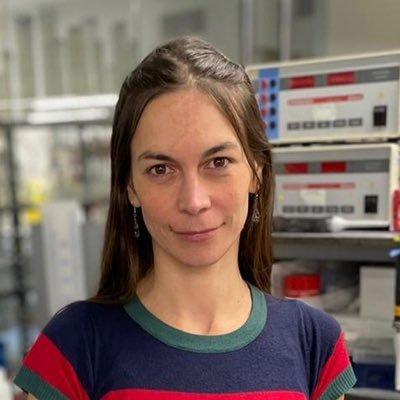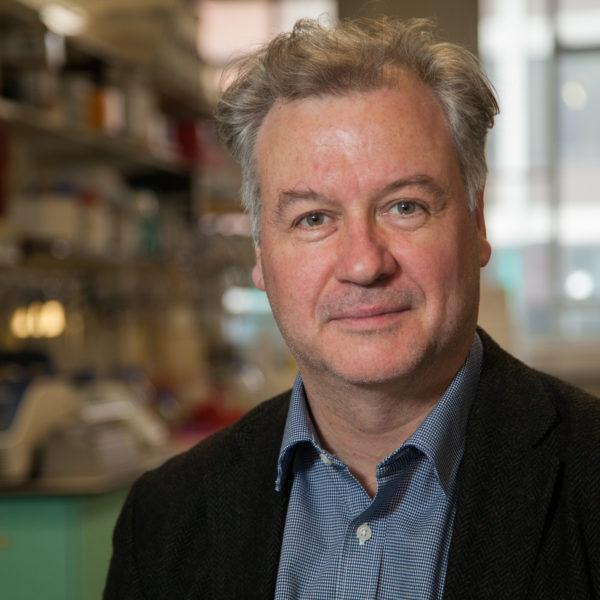Staff Directory
Professor Nitzan Rosenfeld
Director, Barts Cancer Institute; Professor of Applied Cancer Research
The Rosenfeld group develops molecular diagnostic tools for cancer detection, characterisation and monitoring, to help make more informed treatment decisions. We focus on liquid biopsies, in which we analyse blood samples to detect and characterise cell-free circulating tumour DNA (ctDNA).
Professor Nick Lemoine
Medical Director, NIHR Clinical Research Network; Professor of Molecular Oncology Director of the Barts Cancer Institute 2003-2024
My groups’ primary research interests are in the genomics and molecular pathology of pancreatic cancer and the development of oncolytic virotherapy.
Professor Fran Balkwill
Professor of Cancer Biology
My research is focused on the links between cancer and inflammation, being especially interested in translating knowledge of cancer biology into new biological treatments for cancer and in the role that inflammatory cytokines play in cancer promotion. We study the tumour microenvironment of ovarian cancer using a platform of human multi-cellular tissue culture models and mouse models to research biological therapies that may prevent relapse and increase patient survival.
Professor Kairbaan Hodivala-Dilke
Deputy Institute Director, Professor of the Tumour Microenvironment
Our research aims to improve the efficacy of standard of care immunotherapy, chemotherapy and radiotherapy in human solid cancers by understanding the molecular mechanisms underlying tumour stromal contributions to tumour growth and therapy efficacy.
Professor Hemant Kocher
Professor of Liver and Pancreas Surgery
My clinical research interests include tissue banking, clinical trials, innovative surgical techniques, epidemiology, meta-analysis and patient care pathways. My translational research interests include pancreatic cancer stroma and tumour-stroma cross-talk including cell signalling, adhesion, metastasis and invasion.
Professor John F. Marshall
Professor of Tumour Biology
I study the biology of tumour invasion with a particular focus on the roles of the adhesion molecules expressed on the cell surface that mediate this process. Our group concentrates on the study of integrins that are the principal family of adhesion molecules that mediate the interaction between cells and the extracellular matrix.
Professor Tyson V. Sharp
Professor of Cellular and Molecular Biology
My group’s work focuses on the role of the tumour suppressor protein LIMD1 and its family members Ajuba and WTIP and how their deregulation in normal tissue contributes to the development of lung, renal and breast cancer.
Dr Roberto Bellelli
Senior Lecturer
My lab aims to understand the basic mechanisms controlling DNA replication in mammalian cells and how disruption of this process leads to genomic instability and cancer.
Professor Daniel M Berney
Honorary Professor of Genito-urinary Pathology; Consultant Pathologist
My focus is on the pathology and natural history of prostate, testicular and penile cancer working to translate basic research into practical treatments for patients with novel tests and bespoke predictive treatments.
Dr Katiuscia Bianchi
Reader in Cell Biology
The focus of our lab is to study how inflammation, via modulating cellular metabolism, affects different aspects of cancer biology. In particular, we are interested in understating how obesity-associated inflammation rewires cellular metabolism, increasing the risk of breast cancer in obese women.
Professor Andrejs Braun
Professor of Genome Regulation Director of Education
My group is interested in epigenetic regulation of somatic mutagenesis in normal and malignant B cells. We aim to understand how alterations in the nuclear envelope influence B cell chromatin conformation, and what the epigenetic consequences of these alterations are.
Dr Angus James Cameron
Reader in Cell Signalling and Tumour Biology; Director of Graduate Studies (BCI)
My research focuses on kinases regulating cancer cell growth and motility to understand how and when to target them with drugs. My group is currently examining the role of the PKN kinases in malignant progression.
Professor Francesca Ciccarelli
Professor of Cancer Genomics, Barts Cancer Institute Principal Group Leader, Cancer Systems Biology, The Francis Crick Institute
Our group investigates cancer evolution, with a focus on understanding how genetic changes influence disease progression, response to therapy and development of resistance. We particularly concentrate on gastrointestinal cancers such as colorectal, stomach and oesophageal cancer.
Professor Claude Chelala
Co-Director, Centre for Computational Biology, LSI; Professor of Bioinformatics
My research interests lie in the area of translational bioinformatics. Current research projects are focused in high-throughput data analysis, integration with clinical data, databases and software development, particularly for pancreatic cancer and breast cancer.
Professor Tatjana Crnogorac-Jurcevic
Professor of Molecular Pathology and Biomarkers
My research focuses on molecular pathology of pancreatic cancer, in particular its development and progression. We are using this knowledge to develop biomarkers for early, non-invasive detection of this malignancy in urine specimens.
Professor Pedro R. Cutillas
Professor of Cell Signalling and Proteomics
My research group uses unique proteomics and computational approaches to understand how cell signalling pathways driven by the activity of protein kinases contribute to the development of cancer. Increasing this knowledge will be invaluable in advancing personalised cancer therapies.
Dr Jeff Davies
Reader in Haemato-oncology and Honorary Consultant
My group works on developing novel approaches to improve efficacy and safety of allogeneic stem cell transplantation and adoptive immunotherapy as treatments for blood cancers. We focus on T-cell alloreactivity in the context of stem cell transplantation and immunotherapy.
Dr Özgen Deniz
Lecturer
Our research aims to understand the epigenetic regulation of transposable elements and how their dysregulation contributes to the generation and development of cancer. In particular, we investigate their roles as gene regulators and triggers of anti-tumour immunity in blood cancers.
Dr Mirjana Efremova
Lecturer
We are interested in understanding the cellular and molecular mechanisms that promote cancer cell plasticity and adaptation of tumour cells in metastatic niches and under therapeutic pressure.
Dr Gabriella Ficz
Reader in molecular biology and epigenetics
My group aims to discover the epigenetic changes taking place during cancer initiation and develop potential drugs that can prevent these changes which may be abnormal but reversible, before many damaging mutations occur.
Dr Andy Finch
Senior Lecturer
Our group studies changes in metabolism and metabolic stresses that are caused by oncogene activation and how these stresses lead to tumour suppressive responses.
Dr Paolo Gallipoli
Clinical Reader in Experimental Haematology
My research interests focus on mechanisms of disease initiation and maintenance and the identification and validation of novel therapeutic targets in myeloid leukaemias.
Dr Miguel Ganuza
Senior Lecturer
Our goal is to identify mechanisms that support haematopoietic stem cell function and understand how the leukaemic stem cells “play” with these mechanisms to thrive.
Professor Marco Gerlinger
Professor of Gastrointestinal Cancer Medicine; Consultant Medical Oncologist and Director of GI Cancer Research at St. Bartholomew's Hospital
We are investigating how drug resistance evolves in bowel and gastro-oesophageal cancers, how these tumour types can be treated more effectively through novel immunotherapies and targeted drugs, and how treatment sensitivity and resistance can be predicted.
Professor Susana Godinho
Professor in Cancer Cell Biology
Our research group focuses on understanding how centrosome amplification impacts tumour progression and how we can target cells with amplified centrosomes to develop new cancer therapies.
Professor John Gribben
Professor of Medical Oncology
My primary research interests include the immunotherapy of cancer (including stem cell transplantation), the identification of B-cell-tumour antigens; and the detection and treatment of minimal residual disease in leukaemia and lymphoma.
Professor Richard Grose
Professor of Cancer Cell Biology
We are interested in how cancer cells interact with each other and the microenvironment. We investigate how cancer cell communication with neighbouring stromal cells and the extracellular matrix can impact on invasion and response to targeted therapies, to try to block cancer progression, with a particular focus on breast and pancreatic cancer.
Dr Zuzana Horejsi
Lecturer
My lab focuses on discovering functions of phosphorylation induced by damaged DNA in normal and cancer cells, and investigating the role of different phosphorylation events in cancer development.
Professor Louise Jones
Professor of Breast Pathology
My research in breast cancer focuses on the progression of in-situ to invasive disease with the aims of identifying 1) markers which can predict behaviour and 2) novel therapeutic targets.
Professor Stéphanie Kermorgant
Professor of Cellular Oncology
We study the role of growth factor receptor signalling and intracellular trafficking (movement inside cells) in tumour growth and metastasis in the view of improving cancer therapy.
Dr Sergey Krysov
Reader in Molecular Biology
My studies concentrate on the immunogenetics of human B cell malignancies, such as chronic lymphocytic leukaemia, follicular lymphoma and the role for B cell receptor in the pathogenesis of B cell lymphoma and leukaemia.
Dr Rifca Le Dieu
Clinical Reader
I am the Module Lead for 3 undergraduate Biomedical Science Modules. I am also the Cancer Theme Lead for MBBS with direct responsibility for Year 2 Cancer Week. In addition, I supervise MSc project dissertations.
Professor Michelle Lockley
Clinical Professor of Medical Oncology, Honorary Consultant
Our lab aims to improve treatments for women with ovarian cancer, particularly those that are resistant to chemotherapy. We are interested in developing therapies that can adapt to the evolution of chemotherapy resistance over time such as Adaptive Therapy.
Professor Yong-Jie Lu
Professor of Molecular Oncology
We aim to identify genetic alterations that influence cancer development, progression and therapeutic responses, in particular prostate cancer, and further develop them into biomarkers for cancer diagnosis and therapeutic stratification, with a current focus on circulating biomarkers.
Dr Faraz Mardakheh
Reader in RNA Biology
My lab utilises state-of-art multi-omics methodologies to study how protein synthesis is dysregulated in cancer cells, and how this dysregulation contributes to various stages of cancer progression.
Professor Sarah McClelland
Professor of Cancer Cell Biology and Genomics
My lab aims to understand the mechanisms that underlie numerical and structural chromosome aberrations in cancer at a molecular level, which also involves understanding how normal cells replicate and segregate their genomes.
Dr Stuart McDonald
Reader in Gastrointestinal Biology
Our main research areas are focused on understanding the evolution of Barrett’s oesophagus to cancer, field cancerisation of the human stomach, and clonal expansion in ductal carcinoma in situ of the human breast.
Dr Diu Nguyen
Lecturer
The overarching goal of our laboratory is to understand the biology of normal haematopoietic and leukaemic stem cells in order to selectively kill cancer stem cells for better leukaemia treatment.
Professor Jessica Okosun
Professor of Translational Cancer Research
My research focuses on understanding the genetic and molecular mechanisms that underlie the initiation and progression of B-cell non-Hodgkin’s lymphomas in order to define clinically-relevant biomarkers.
Dr Luigi Ombrato
Lecturer
My group studies how different populations of immune cells in the tumour microenvironment cross-talk in order to establish a tumour-supportive niche in metastasis. This research aims to identify more effective therapeutic targets in metastatic cancers.
Dr Oliver M. Pearce
Senior Lecturer
The focus of our research is the tumour microenvironment and we are particularly interested in understanding the composition and function of the tumour extracellular matrix in immunosuppression. Cancer types we focus on include ovarian and breast cancers.
Dr Barrie Peck
Senior Lecturer
My lab aims to understand the alterations in metabolism that take place in cancer and investigate whether extrinsic factors, such as diet, influence cancer metabolism and disease trajectory. We then want to uncover whether these dependencies can be exploited therapeutically.
Professor Thomas Powles
Professor of Genitourinary Oncology; Director, Barts Cancer Centre at St. Bartholomew's Hospital; Lead for Solid Tumour Research
My main research interests are in genital and urinary cancers, leading a spectrum of clinical studies from phase I to randomised phase III. The majority of the studies are translational phase II studies investigating novel targeted and immune therapies.
Dr David Propper
Senior Lecturer; Consultant Medical Oncologist
My focus is on detailed translational trials in pancreatic cancer, with a focus on targeting the tumour microenvironment. Our aim is to define what perturbations occur in tumours of patients receiving trial drugs.
Professor Prabhakar Rajan
Professor Urology and Robotic Surgery
My laboratory research explores alternative pre-mRNA splicing in prostate cancer (PCa) biology, and liquid biopsy-derived molecular biomarkers of treatment outcomes.
Dr Paulo Ribeiro
Reader in Cell and Developmental Biology
Our research group is interested in uncovering the molecular mechanisms regulating tissue growth, invasion and metastasis using the fruit fly Drosophila melanogaster as a genetically tractable model organism.
Dr John Riches
Clinical Reader in Cancer Immuno-metabolism
My major research interest is understanding the metabolism of chronic lymphocytic leukaemia and lymphoma with the aim that this will underpin the development of the next generation of anti-metabolic drugs for these diseases.
Dr Kevin Rouault-Pierre
Senior Lecturer
My main research interests are in haematopoietic stem cells (HSCs) and leukemic initiating cells. I seek to understand how intrinsic and extrinsic signals are integrated by normal and malignant stem cells.
Professor Victoria Sanz-Moreno
Honorary Professor of Cancer Cell Biology
Our research focuses on how the cytoskeleton of cancer cells regulates transcriptional rewiring during tumour growth and dissemination. We aim to understand how such rewiring affects the tumour microenvironment.
Professor Peter Schmid
Professor of Cancer Medicine; Centre Lead, Centre of Experimental Cancer Medicine; Director, Barts Breast Cancer Centre
My research interests focus on improving the care of women with breast cancer through clinical trials. I am investigating a variety of novel agents that target specific pathways within cancer cells and the surrounding tissue.
Dr Vivek Singh
Lecturer in Digital Pathology
Dr Tanya Soliman
Lecturer
My research focuses on kinase biology and how kinase signalling pathways are hijacked in cancer. We combine computational biology with proteomics and cell biology to uncover novel ways to target these dysregulated networks.
Dr Lovorka Stojic
Senior Lecturer
My group studies how RNA-mediated mechanisms, in particular long noncoding RNAs, regulate cell division and how dysregulation of these processes leads to genome instability and cancer.
Professor Peter Szlosarek
Professor of Medical Oncology
My main research interest is in exploring why ASS1 is aberrantly expressed in human cancers and how this knowledge may be exploited for anticancer therapy. I lead an active translational programme from bench to bedside of the arginine-depleting agent ADI-PEG20 in several hard-to-treat cancers.
Professor Jane Sosabowski
Professor of radionuclide imagaing and therapy
My research focuses on the development of radiopharmaceuticals for imaging and therapy of cancer, and translating these to the clinic
Dr Jun Wang
Reader in Genomics and Data Science
I have broad research interests and experience in bioinformatics, cancer genomics and data analytics. These research areas mainly involve developing and applying bioinformatics and computational approaches to analyse large-scale cancer datasets to uncover novel diagnostic and prognostic biomarkers. I also lead the Cancer Research UK Barts Centre Bioinformatics Core Facility.
Professor Yaohe Wang
Professor of Cancer Cell and Gene Therapy
We work on cancer prevention and immunotherapy using tumour-targeted replicating oncolytic viruses, in particular focusing on replicating adenovirus and vaccinia virus.
Dr Benjamin Werner
Reader in Somatic Evolution
My group combines mathematics, computer simulations and genomic information to study evolutionary processes. We aim to understand how a tumour’s evolutionary history is reflected in its genome, how evolution can be quantified in individual tumours and how this information predicts future evolution.
Dr Bela Wrench
Clinical Senior Lecturer
We are interested in understanding the cellular and molecular mechanisms responsible for relapses in acute lymphoblastic leukaemia and progressing these insights into translational diagnostics and clinical trials.
Dr Oscar Maiques
Our research focuses on the principles of spatial biology, integrating digital pathology, multi-omic data, and various imaging modalities to explore tissue architecture and the tumour microenvironment.




























































